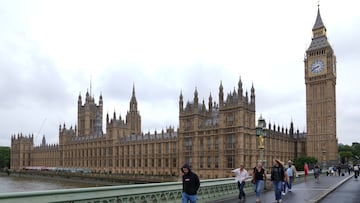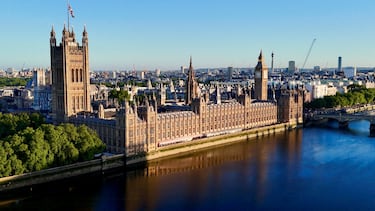Who is Lindsay Hoyle, the Speaker of the House of Commons in the United Kingdom?
The Lancashire native is the voice of authority when the time comes for the politicians to shout across the Parliament floor.


Tune into the UK news on a Wednesday morning, and you’re likely to see something called Prime Ministers Questions. This is when, every week, the opposition to the government get the chance to grill their political foes on policy. It’s a special event in British politics that happens every week, and sometimes the debates can get a bit spicy.
In that event, the Speaker of the House of Commons steps in. That’s where you’ll hear Lindsay Hoyle’s booming voice call for calm and order in the house.
Out and about this afternoon…many thanks for all the support!#fromChorleyforChorley #reelect #today pic.twitter.com/wHNdQH7IiW
— Sir Lindsay Hoyle (@LindsayHoyle_MP) July 4, 2024
Who is Lindsay Hoyle?
Sir Lindsay Harvey Hoyle was born 10 June 1957 and ran his own textile and screen printing business before moving into politics. He was a member of the Labour Party before becoming speaker (more on that below) and a Member of Parliament since 1997.
He has served as the Speaker of the House of Commons since 2019, winning election to the post on 4 November 2019, following the retirement of John Bercow, the previous speaker. HOyle has served as Speaker of the House of Commons under two monarchs: Queen Elizabeth II and Charles III, as well as four Prime Ministers, Boris Johnson, Liz Truss, Rishi Sunak (Conservative) and Kier Starmer (Labour).
What is the Speaker of the House of Commons?
The role of the speaker is, as mentioned, to keep a lid on things when the arguments across the table get too heated. The Speaker must be strictly non-partisan and upon election into the role, they are expected to renounce all affiliation with their political parties when taking office.
Role of the Speaker of the House of Commons:
- Controlling Commons debates
- Deciding who can speak
- Choosing which amendments can be heard
- Upholding parliamentary rules
- Allowing urgent questions or emergency debates
- Exercising the casting vote in the event of a tie
(source: BBC)

Related stories
They also don’t participate in debates; their job is similar to a judge in a court, banging the gavel to calm incessant lawyers. They sit in a chair at the front of the House; the Government sit on the the right, and those in Opposition on the speaker’s left. During debates, MPs must direct their speeches not to the whole House or a specific MP, but to the speaker, using the words “Mister Speaker” or “Madam Speaker”.
The Speaker of the House of Commons has an official residence at Speaker’s House, which is a corner of the Palace of Westminster.


Complete your personal details to comment